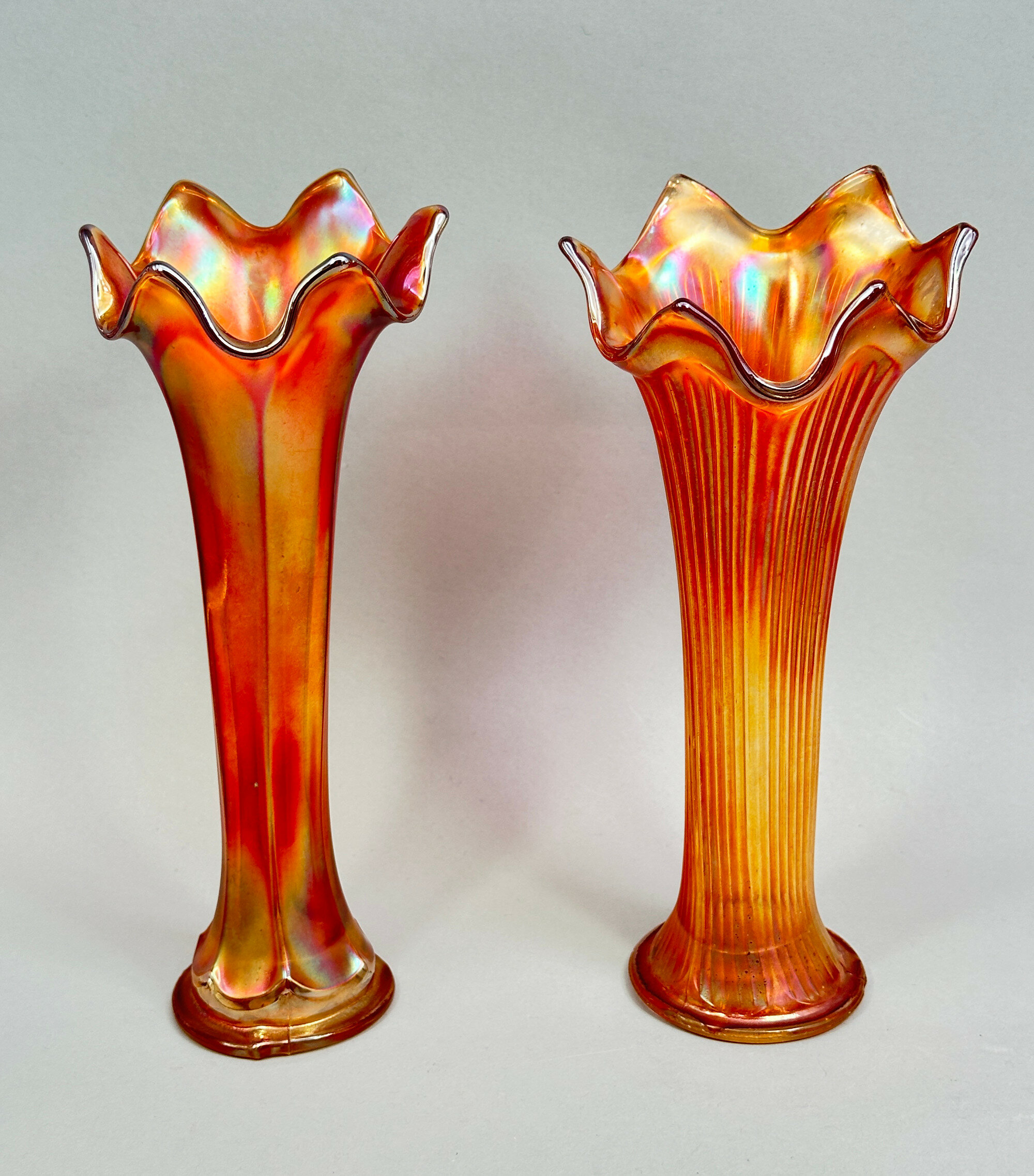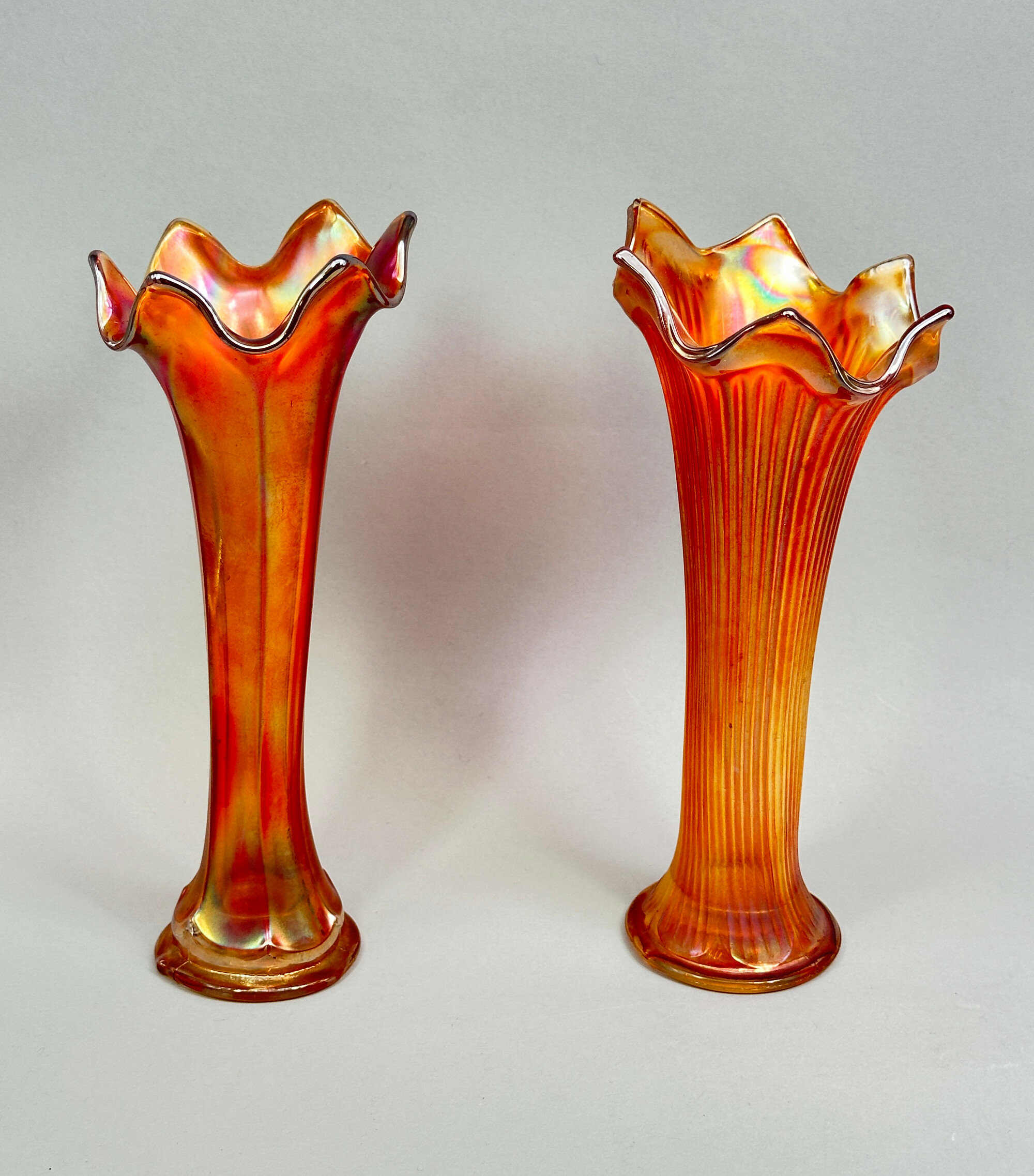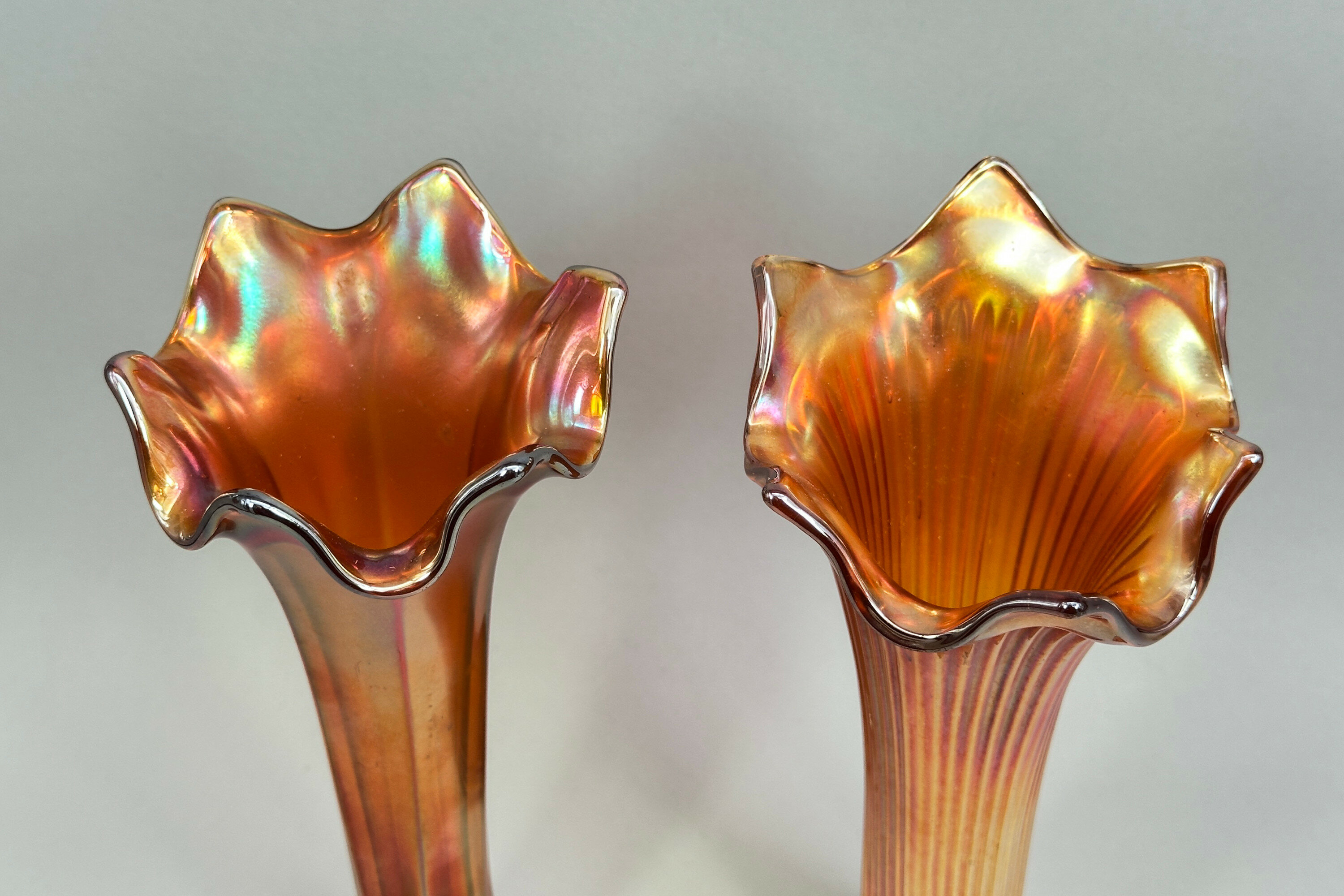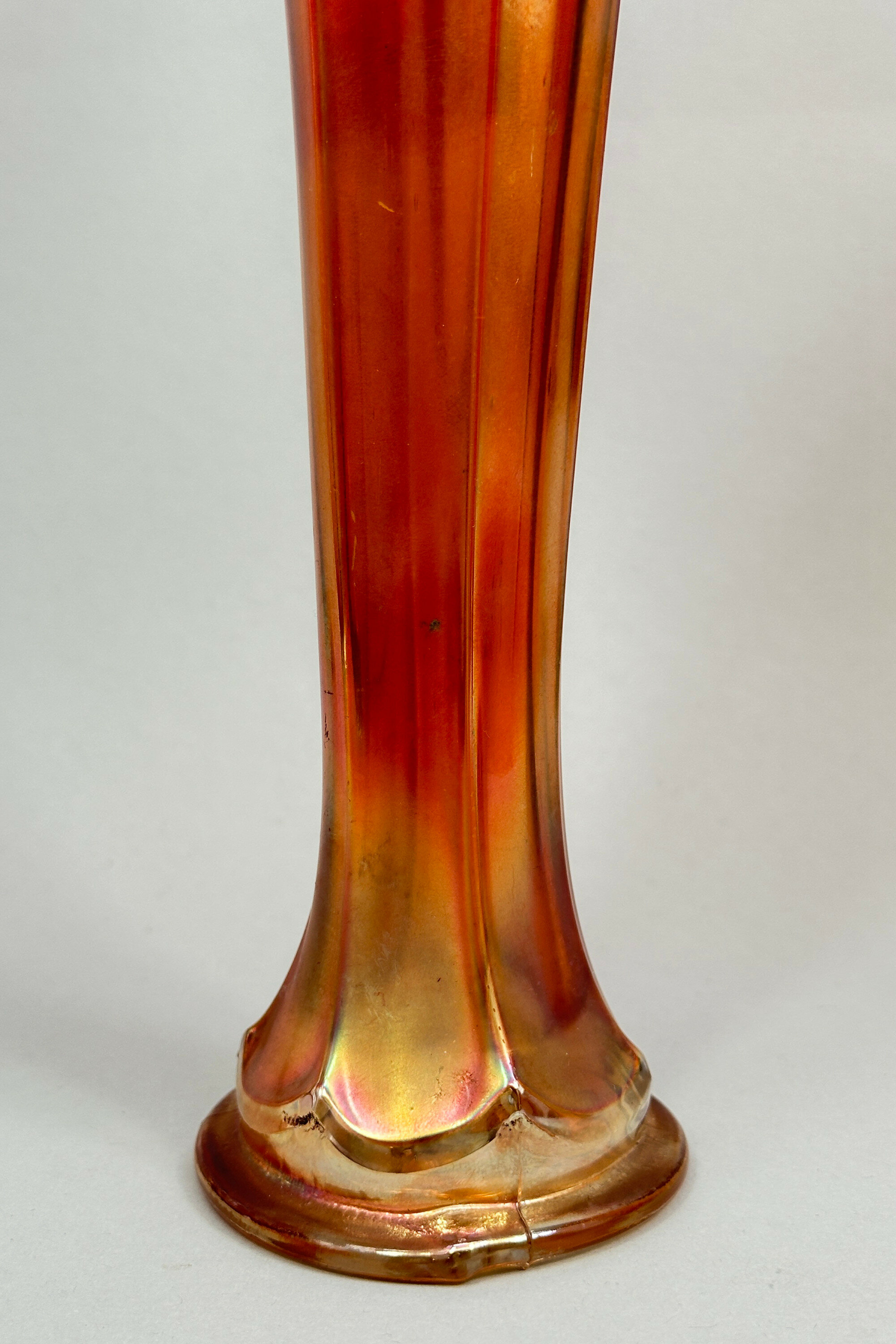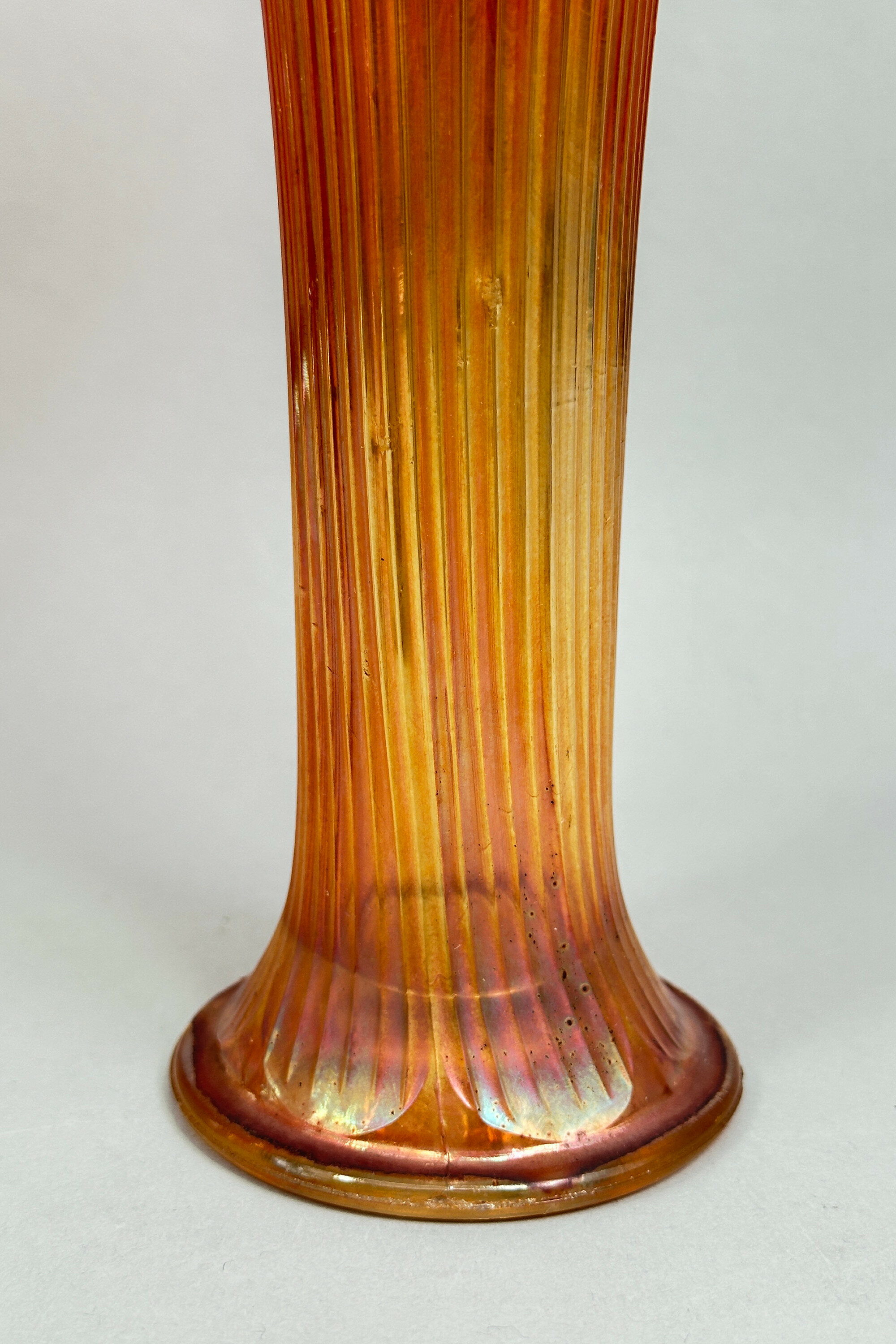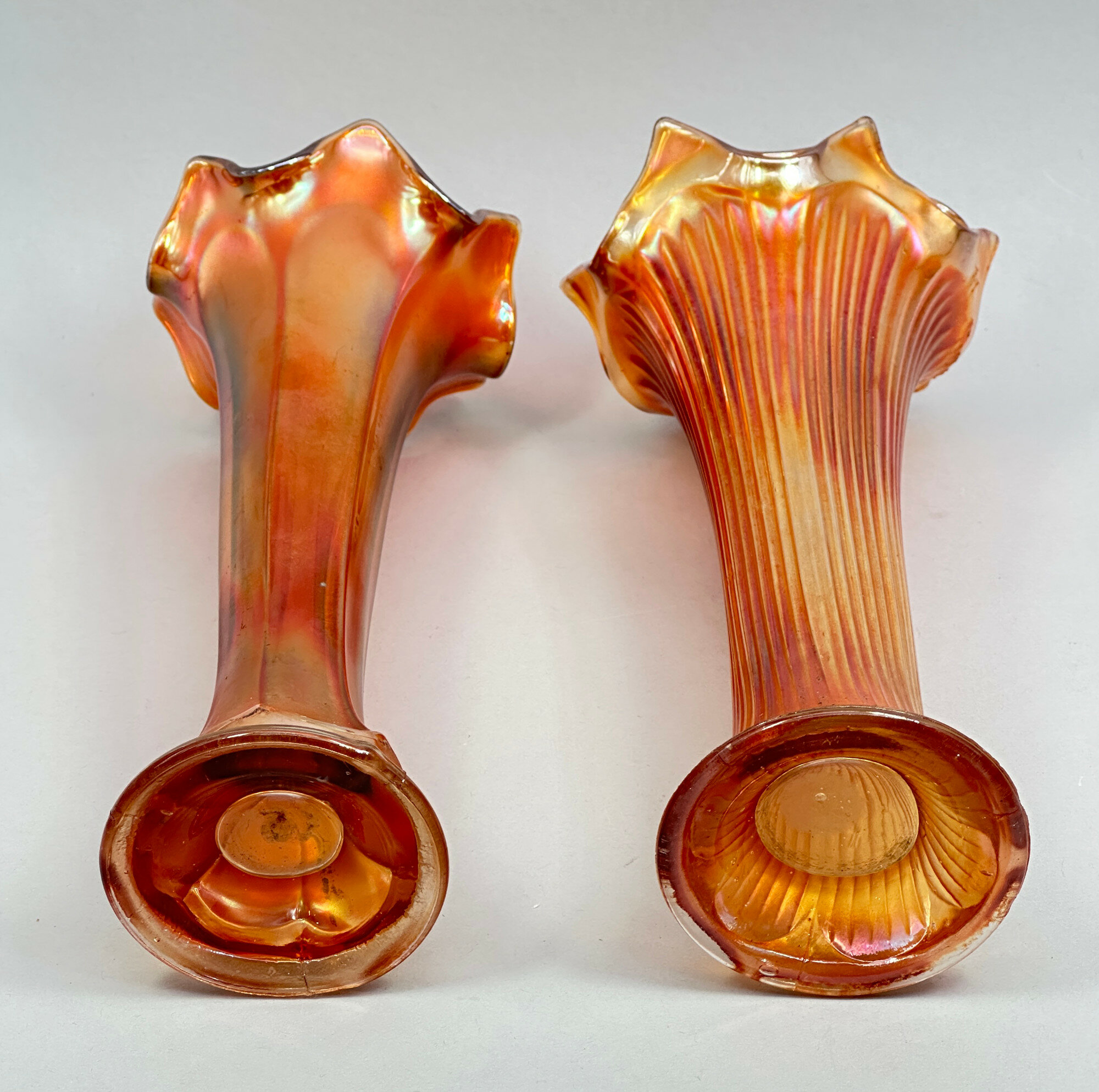Two Carnival Glass Vases, Marigold, probably Fenton USA, early C20th
| Current Bid: | £26.00 |
| Bid Increment: | £2.00 |
| Next Min Bid: | £28.00 |
| Buyer’s Premium: | £6.24 |
| Total Amount: | £32.24 |
| Number of Bids: | 3 |
| Location: | United Kingdom |
| Highest Bidder: | User 1411 |
| Auction Start: | 15/06/25 15:15:00 UTC |
| Auction Ending: | 30/06/25 19:30:00 UTC |
| Auction Finished : | 30/06/25 19:30:02 UTC |
LOT NUMBER 16
Two Carnival Glass Vases, Marigold, probably Fenton USA, early C20th
These are two fine examples of so called ‘carnival’ glass. The forms are similar, a tall columnar like body, slightly tapering inwards to the spreading base and flaring outwards to the broad crimped rim, but one has a plainer panelled body and the other is fluted. Carnival glass is moulded or pressed glass to which an iridescent surface shimmer has been applied, which can be seen very clearly here. The technique was developed by the American firm, Fenton Art Glass Company, in 1908. Sales were initially sluggish but when the wares were discounted in price they rapidly gained in popularity and were then manufactured in great numbers over a period of approximately twenty five years. The aim was to recreate the effects of the much more expensive blown iridescent glass by makers such as Tiffany, leading to the unfortunate designation ‘poor man’s Tiffany’, but the modest purchase price allowed a wide circulation amongst the enthusiastic buyers. Various American firms produced these pieces which were then mass produced around the world. The term ‘Carnival’ was adopted in the 1950s and derives from the fact that these pieces were often given out as prizes at carnivals, fetes, and fairgrounds but originally the majority of them were bought as decoration for the home. Few pieces are marked, but the colourings here match the ‘Marigold’ tones produced by Fenton in the 1920s and these vases were most likely made by them.| Size: | Ht 23 cm Width (max) 9cm and 10 cm |
| Weight: | 675 grams for both |
| Date: | Early C20th |
| Condition: | Good condition, no issues |
| Estimate: | £40 – 60 |
